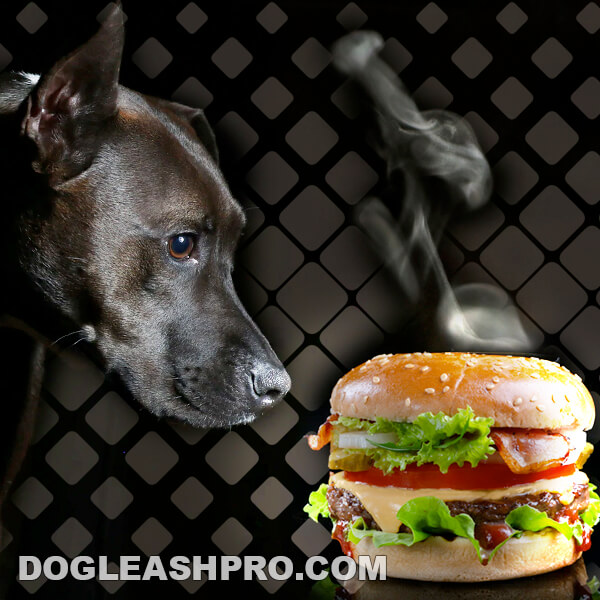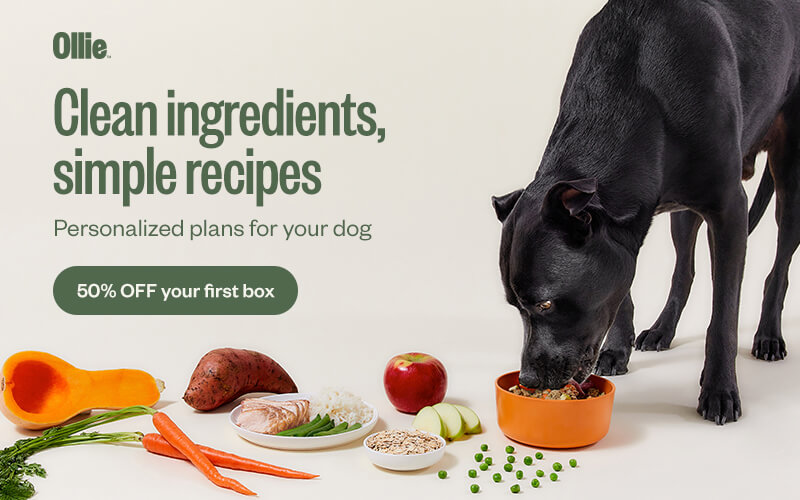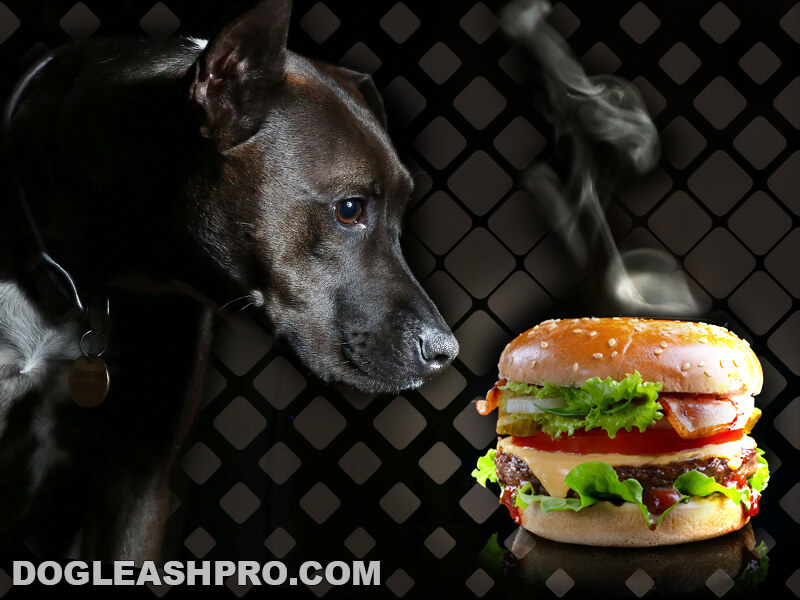
How long can a dog go without eating? Most healthy and well-hydrated dogs can go up to 7 days without eating if you provide them plenty of cool fresh water. However, dogs that are sick, not hydrated, and malnourished can go up to 3 or 4 days without eating. It also depends on what disease they have.
Our K9 family members need to eat every day in order to stay healthy, happy, and active. But sometimes there are situations that can cause them to lose their appetite and not eat. Recently, my Chihuahua puppy went for an extended period of time without eating and I became very concerned.
I realized that there are plenty of dog owners that are also going through the same situation with their dog not eating so it inspired me to write this post. In this article, you’ll learn the reasons behind why dogs won’t eat and what you should do immediately if your dog isn’t eating their food.
Table of Contents
How Long Can A Dog Go Without Eating: Factors that affect survival time
As you may already know, all dogs are different so each dog’s tolerance to starvation is also different.
Even if your pooch can tolerate long periods without food (say more than 1 or 2 days) doesn’t mean that they should or that it is a healthy habit.
However, there are reasons why dogs may refuse to eat or situations that cause them to lose their appetite as we will discuss later in the article.
For now, let’s go over the factors that can affect how long a dog can go without eating.
RECOMMENDED: Why Does My Dog Nudge His Food Bowl Before Eating? 10 Reasons Why!
Age of a dog
The age of a dog is one of the many factors that can affect how long a dog can go without eating.
For example, if you have an adult or senior dog, they may be more at risk of the effects and consequences of starvation since they are already weak.
If you have a newborn puppy, the puppy may need to be fed every 2 hours.
Dog’s starting body condition
A dog’s starting body condition affects how long a dog can go without eating.
For instance, if you have a perfectly healthy dog with a normal weight, then she or he will be able to survive without food longer than a canine that is already sick and underweight before going without eating.
You may also be interested in: How to Get Your Dog to Eat When Sick
Dog activity level
The dog’s activity level also affects how long a dog can go without eating.
If you have an active dog like a Border Collie, then they need more exercise and the ability to walk and run around.
As a result, they will burn their calories faster compared to an inactive dog like a Chihuahua that doesn’t require much exercise.
When active dogs burn calories, they need to make up for it by eating food in order to maintain their healthy weight. Not eating for days can affect their weight and overall health.
Access to fresh water
Dogs that are well-hydrated and are provided water can last longer without eating than a dog who hasn’t eaten or had water in days.
There have been cases of dogs going without eating or drinking water and were able to survive for about 2 or more weeks.
Why won’t my dog eat?
There are many reasons why your dogs won’t eat like they used to.
In addition to my Chihuahua puppy eating situation above, I also had this experience with my Labrador dog mid-last year.
My Labrador dog, Daisy, would eat anything and everything I gave her. She was always nudging me to give her food, snacks, and treats. One winter last year, all that changed. I gave her lunch and headed out to work.
When I came home in the evening, the food sat untouched in her food and water bowl. That was surprising and something new to me as she always gobbles up her food the moment I put down her food bowl.
That night, I noticed that my Labrador didn’t run to greet me at the door like she always does with a wagging tail.
Instead, she lay in her crate looking very sad. When I tried to get her to walk over to her food bowl, she refused. I knew I had to schedule a vet visit right the next morning.
We found out that she had a medical condition with her hip as she had hip dysplasia or hip osteoarthritis which explained why she didn’t want to get up from her crate and why she didn’t bother to walk over to her food bowl or greet me at the door when I came home that night.
Speaking of medical conditions, let’s dive right into this topic.
Reasons why my dog won’t eat
Medical conditions in dogs
Here are some common medical conditions that may cause dogs (like my cutie Labrador) to lose their appetite and as a result won’t eat:
- Serious health conditions like canine degenerative myelopathy, kidney and liver failure, lymphoma, hip dysplasia, or torn ACL.
- Allergies or allergic to some of the food you’re feeding your pooch.
- Infection.
- Upset stomach.
- Gastrointestinal upset.
- Arthritis (common in older adults or senior dogs).
- Dental issues like tooth or gum pain or gingivitis.
- Muscle pain.
- Wound pain.
- Parasites.
- Something large lodged in your dog’s stomach from ingesting a foreign object like toys, balls, bones, socks, or rocks causing stomach and intestinal pain.
- Autoimmune diseases such as autoimmune skin disease or autoimmune hemolytic anemia in dogs.
You may also be interested in Canine Degenerative Myelopathy
Mental Conditions in dogs
Depression, anxiety, and separation anxiety are some of the common mental conditions in dogs that could cause them to lose interest in food and therefore won’t eat.
Let’s discuss them in detail and find out the signs of anxiety and depression in dogs and how to best treat these mental conditions.
Dog depression
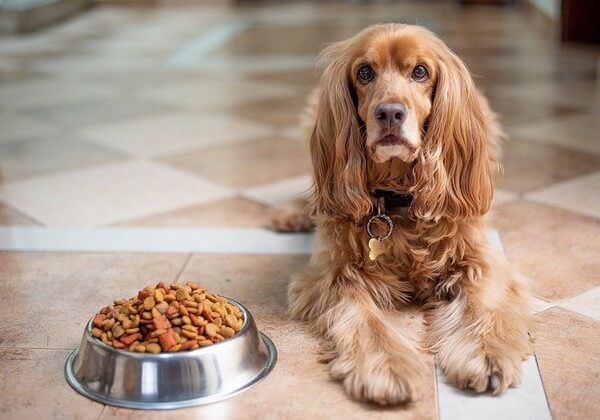
Yes, dogs can get depressed too and this could be another reason why they won’t eat or refuses to eat.
Dogs can have depression from experiencing major changes in their lives such as:
- Dog owner adds another dog or pet in the house.
- A new addition to the household such as a baby, significant other, or spouse.
- Dog owners that were once working from home or stayed at home are now taking a job that requires them to work in the office and the dog can feel lonely and down.
- Moving to a new location and home.
- Changes in a dog’s normal routine or schedule can cause dog depression.
Many canine owners love having a dog because it gives them a routine such as getting their 30-minute exercise by walking their dogs.
Dogs also love having a consistent routine or schedule as well. If this routine is disrupted, it can cause a dog to feel down or depressed and he or she may lose appetite as a result.
For instance, last month my friend asked if I could doggy sit her small 10-year-old Chihuahua, Coco.
Usually, Coco would sleep in the corner of my friend’s bed, but since my friend left for a one-week vacation, the small pooch had to sleep in her doggy crate in the living room.
Her tiny Apple head Chihuahua looked sad the first night without her owner and having to sleep in a doggy crate. Coco was awfully quiet, sad, and feeling down that she refused to eat that whole evening.
I calmly pet her and stayed with her throughout the night. The next morning Coco seemed more cheerful and she was eating again.
Dogs with anxiety
Not only was Coco sad and depressed from having her normal routine disrupted which resulted in her refusing to eat, but she was also experiencing separation anxiety.
This was the first time her owner left her for about a week or 6 days. Usually, the most she was separated from her owner was about 2 to 3 hours.
Dogs with separation anxiety will lose their appetite or refuse to eat. If your canine family members refuse to eat for more than 2 days, we highly recommend that you bring them to the vet.
Your vet may prescribe the proper medication for your pooch with separation anxiety or offer you tips on how to keep your canine friends calm.
If your K9 friends suffer from separation anxiety, your vet may recommend that you spend more time with them. Separation anxiety is one of the most common forms of anxiety in dogs and it usually occurs when the dogs are away from their owners for an extended amount of time.
My friend’s Chihuahua Coco has separation anxiety when her owner leaves for a 6-day vacation. Dogs, in general, can also experience separation anxiety if their owners work long hours or travel frequently.
If you’re a dog owner and you know you will be working long hours or traveling a lot for your job, we recommend that you bring your pooch to a pet daycare center.
This will allow your furry friends to socialize with other dogs and people. It’s best to start this socialization process early during puppyhood. The pet daycare center may offer obedience training, socialized playing, and even agility training.
Your pooch will learn and experience a lot from a pet daycare center than staying at home alone with separation anxiety that causes her to lose interest in food and not want to eat.
Here are some behaviors that will let you know that your dogs may be experiencing anxiety and are aggressive:
- Tucking the tail between their legs.
- Shaking or trembling.
- Barking, howling or growling.
- Doesn’t like being touched.
Some dogs may have anxiety and prefer to be alone by:
- Running away and hiding.
- Doesn’t want to go outside without having a panic attack.
When your dogs are anxious, they may lose interest in food and won’t eat. If this is the case with your pooch, we highly recommend that you bring your pooch to the vet immediately and seek treatment options.
READ ALSO: Why Are Chihuahuas So Aggressive? 7 Shocking Reasons
Dog being picky with food
While most dogs love any and all food that you feed them, some dogs do become picky with food over time.
This behavior is natural. For instance, my Chihuahua just refuses to eat bananas, Brussel sprouts, mushrooms, and potatoes.
But my small Chihuahua dog loves chicken! So I’ll crush the Brussel sprouts or carrots into her chicken and she will usually eat everything.
If your pooch is picky with food and won’t eat a specific food that is good for them, try crushing it into tiny pieces and mix it with food that your dog loves to eat.
Alternatively, I trust Ollie Fresh Dog Food as it is healthy and fresh and made with real, human-grade ingredients. Ollie dog food is tailored to my furry friend’s unique nutritional needs.
Best of all, they deliver this food right to my door step.
If you have a new dog and don’t know yet what your pooch likes to eat, it’s best to try a wide variety of food and see which one they like. Whichever one your four-legged friends like, go with that particular food so they can start eating again.
This may take a while to figure out so staying calm and being patient is essential.
How long can a dog go without eating with cancer?
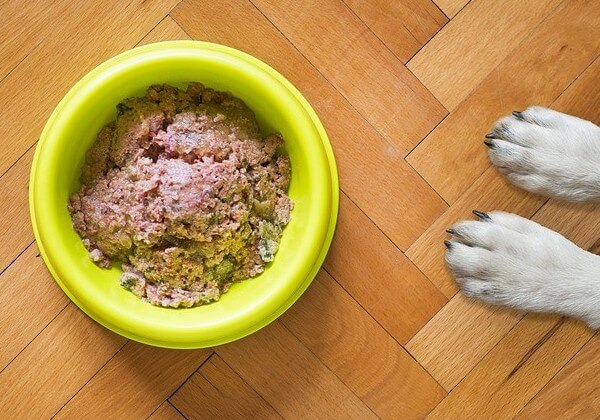
Dogs with cancer can go for about 3 or 4 days without eating.
However, we don’t recommend that you wait this long before making sure that they eat. If your dog has cancer, they are in a weak state so proper nutrition and diet are key.
Contact your vet right away to get an accurate diagnosis of why your dog is not eating and be sure to follow the vet’s order in order to get your pooch back to eating normally again.
How long can a dog go without eating or drinking?
A dog can go without eating or drinking for up to 3 days. Again, we don’t recommend that you allow your canine family member to go for this long in order to get him or her to eat and drink again. Water is necessary to keep your pooch hydrated and food provides nourishment.
If your dog isn’t eating or drinking, consult with your vet immediately. Bring your dog to the vet for a checkup to find the root cause of why your dog is not eating or drinking.
How long can a small dog go without eating?
A small dog like a teacup Chihuahua, regardless of whether the dog is active or not, can go up to 3 days without eating. This is not good. If you notice your small pooch hasn’t eaten for up to 48 hours, we highly recommend that you call your vet immediately to find the source of the problem and treat this as soon as possible.
Dangers of starvation in dogs
Many animal doctors and pathologists suggest that our furry friends are highly at risk of dying if they lose 35 to 50% of their healthy body weight.
Here are two examples of a small dog and a medium-sized dog. If you have a healthy medium-sized dog that weighs 75 pounds and he lost a significant amount of weight where he is now 49 pounds or less, then he is at risk of dying from starvation.
A healthy small Chihuahua dog that weighs 10 pounds would be at risk of dying from starvation if he is now 7 pounds or less.
Only a few healthy dogs can go without eating for quite a long time
Back in 1912, there was a dog named Oscar who survived about 117 days without eating. He was a Scotch Collie and this dog breed was bred to herd on the farm.
Thus, Scotch Collies have a reputation for being tough and it is that characteristic that allowed him to survive starvation for almost four months. The funny thing was Oscar remained in a good and happy spirit.
When the experiment was over and Oscar, the Scotch Collie was allowed to eat again, he was able to regain back all of his weight without any problem.
Unfortunately, many other dogs in this experiment did not have this happy success story. Instead, they became weak and tired and could not survive for as long as Oscar.
How long can a dog go without eating after surgery?
A dog can go up to 20 to 24 hours without eating after surgery. If your pooch had surgery, he or she would most likely have had anesthesia. It can take the anesthesia a few hours to wear off.
Thus, in this situation, it’s best to wait up to 3 or 4 hours to feed your pup after the surgery so that he or she won’t choke on the food.
If you’re not sure, your dog’s doctor should be able to provide you with a more accurate answer since every dog is different and the anesthesia has different effects on different dogs.
Your dog’s doctor should provide you with instructions on the proper feeding procedures after your pooch’s surgery.
If you forgot, call them again and ask them to repeat the feeding procedure. Have a sheet of paper and pen ready to take some notes.
So, How Long Can A Dog Go Without Eating?
If you have a healthy dog that is well-hydrated and this is a one-off situation, then he or she can go up to a week or 7 days without eating.
Be mindful not to go for more than 3 or 4 days if your pups are sick, haven’t been staying hydrated, or are already malnourished.
Regardless of what the reason is behind why your dogs won’t eat, it’s crucial that you bring them to the vet as soon as possible.
Your vet will perform a checkup and find out the root cause for why your dog isn’t eating and provide necessary treatments so that your precious pooch can eat again.
Don’t try to guess the problem yourself. Have your dog’s vet assist you through this and the vet is the only one that can provide a proper diagnosis of the problem behind why your dog won’t eat.
It’s important that dog owners take the advice of the vet and follow through on the recommendation. If your pup’s vet prescribes medication, then it’s best that owners administer the medication right away so that their pooch can start to eat again.
If it’s due to separation anxiety, your pooch needs some extra time, love, and affection from you.
DISCLAIMER: THIS WEBSITE DOES NOT PROVIDE MEDICAL ADVICE
The information, including but not limited to, text, graphics, images and other material contained on this website are for informational purposes only. No material on this site is intended to be a substitute for professional veterinary advice, diagnosis, or treatment. Always seek the advice of your veterinarian or other qualified health care provider with any questions you may have regarding a medical condition.
Resources:
https://www.ncbi.nlm.nih.gov/pmc/articles/PMC6488012/
https://www.sciencedirect.com/science/article/pii/S0034528816303332

With over five years of specialized experience as an animal writer, my expertise lies in dog nutrition, health, behavior, grooming, and training. I am dedicated to delivering helpful and informative content that caters to the well-being of our furry friends. My primary goal is to empower pet owners with knowledge and ensure our canine companions thrive in health and happiness. In my free time, I love volunteering at local dog rescue centers.
